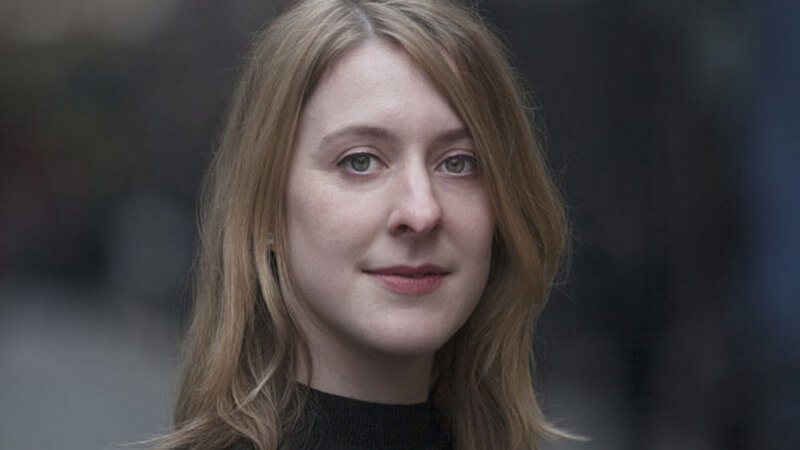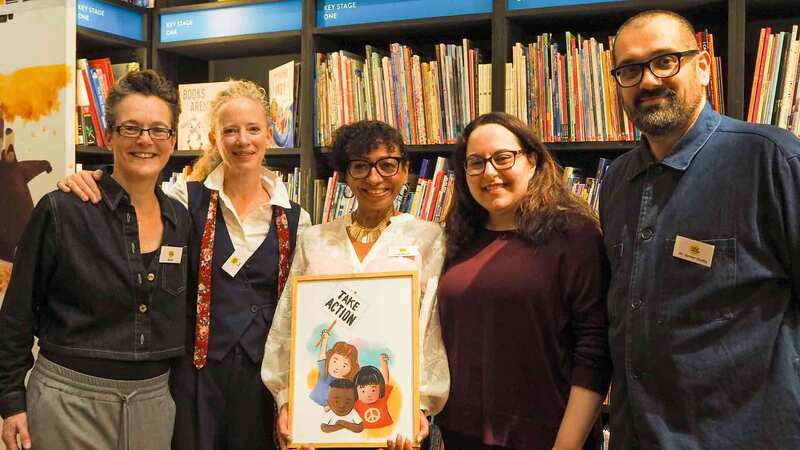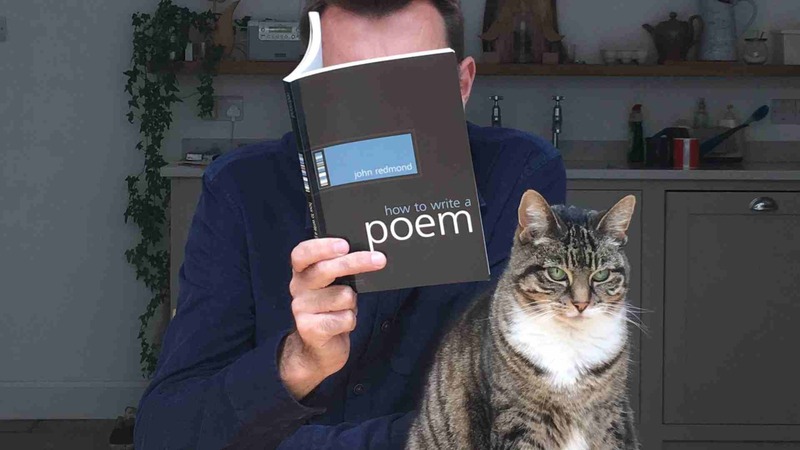You are viewing your 1 free article this month. Login to read more articles.
Egmont rebrands as Farshore
Egmont is rebranding as Farshore now that the business is part of HarperCollins, m.d. Cally Poplak pictured above has confirmed in an interview with The Bookseller.
The name Farshore reflects “the breadth” of its “broad and inclusive” portfolio, which goes from pre-school to YA and “every category inbetween”, she said. “We wanted to create a new brand that reflects our mission, which is to make every child a proud reader, but also echoes these new opportunities we have as a business to expand our business and break the boundaries of who we were before. Because of where the industry is around diversity and inclusion, this was a great point to show that we want to be outward-looking, and go wherever it is to find a book that will hook every child.”
The Farshore name and logo will feature on all publishing, branding and social media going forward and the company will today (12th March) reveal the results of a Farshore community art project, undertaken with Folkestone-based East Cliff Creatives. For the project the company asked schools to submit a piece of art inspired by the question: “Where does reading take you?” The submissions have been arranged into a giant piece of artwork revealing the Farshore name, and one child, who submitted what is deemed to be the best entry, will receive £500 worth of books for their school.
“For our readers, but also our staff and partners, we want Farshore to represent opening up a world of endless possibilities and fearless adventuring,” said Poplak. She confirmed that not only will the name be used for all books published from now on, but titles previously released under Egmont will be republished with the Farshore name when they go out of print.
HarperCollins announced its intention to acquire Egmont for an undisclosed sum in April last year, when HC UK c.e.o. Charlie Redmayne spoke of his excitement about welcoming Egmont’s “exceptional” list (including Winnie-the-Pooh and Thomas the Tank Engine) and licensing experience. Egmont Magazines has been spun-off as a separate business, run by Siobhan Galvin, but everything else has become Farshore. “We have autonomy in terms of what we are publishing but when I was running a standalone business, I had to manage everything that comes with running a business from across the supply chain,” said Poplak. “Now, we have support from the HarperCollins structure with everything from finance to HR, and the heft that comes from a centralised production organisation as well.”
Poplak sits on a newly established children’s board, alongside Ann-Janine Murtagh from HarperCollins Children’s Books and Alex Beecroft from Collins Learning, and there will be many collaborations with the whole company going forward, she said.
“We were a top-10 children’s publisher before but we were the only top-10 publisher not to have an adult, educational or US arm. Coming to HarperCollins, we now have all those advantages. For me, it was important to jump on those from day one.”
Farshore has acquired the master rights to Paw Patrol along with Collins Learning, for example, and bought the rights to Blackout, a book by six Black authors (Dhonielle Clayton, Tiffany D Jackson, Nic Stone, Angie Thomas, Ashley Woodfolk and Nicola Yoon), alongside HarperCollins US. Poplak promises to grow Red Shed (the non-fiction imprint) and Electric Monkey (YA), and offer more in terms of brands and licensing, including adult licensing. And, thanks to HarperCollins’ audio expertise, the division has adopted a “total audio policy”, with all narrative books being released in print, e-book and audio formats.
Farshore editors will continue to acquire books separately from HarperCollins Children’s Books. The two divisions have “complementary” portfolios and agents can now pitch to an “even broader” pool of editors, who are collaborating strategically to look at how to reach the broadest audience, says Poplak. For retailers, her message is that HarperCollins now has an “extraordinary” portfolio of classics. “It brings a smile to my face to have Winnie-the-Pooh and Paddington in the same family. Between us, we have a very broad portfolio of authors and illustrators, bestselling chart-topping names.”
Opportunties to collaborate
HarperCollins operates a matrix structure when it comes to sales, and each division has its own sales team, but that sales team is plugged into a broader, central sales team, providing the best of both worlds, according to Poplak. Similarly, Egmont was renowned for its research into children’s reading habits and this will continue, but alongside the work of HarperCollins’ central consumer insight team. There could be collaborative PR and marketing initiatives, but the word there is “watch this space”.
Poplak said she “couldn’t be more proud” of the Egmont/Farshore team, who “have not only integrated themselves into HarperCollins, but have moved things like archives, physical warehouses, export distribution partners, offices… all while keeping a supply of books to the market.” Highlights from the list last year include winning the Children’s Book of the Year at the Nibbies (Holly Jackson’s A Good Girl’s Guide to Murder) and publishing two pandemic books: The Great Realisation by Tomos Roberts and Nomoco, and a picture book by Matt Lucas, which raised money for FareShare.
“We did that all that while acquiring as much as ever,” Poplak said, adding: “Everyone at HarperCollins has just bent over backwards to help us make this the smoothest transition possible… I have been bowled over by the collegiate, collaborative nature of everybody at HarperCollins, who have taken us to their bosom.”
When asked if she is planning on expanding the team or, indeed, decreasing the number of staff, she said: “We are looking at growth, so we will see how we evolve going forward. As we are, the team is as it is, and agents and licensors can be reassured that the team they know is here and firing on all cylinders.”
Moving forward, Poplak thinks books about community and kindness will continue to be popular and that resilience is something that will take centre stage as a theme. She also says there is “a lot more to do” when it comes to diversity and inclusion. Towards that aim, Farshore has just published I am Every Good Thing, Derrick Barnes and Gordon C James’ celebration of Black boyhood, and a picture book called In My Mosque by M O Yuksel and Hatem Aly is coming at the end of the month. The publisher has also just signed a publishing partnership with Serlina Boyd, founder of Cocoa Girl magazine.
When The Bookseller announced HarperCollins was buying Egmont last year, it reported that the deal would create what is likely to be the biggest UK children’s publisher in terms of Total Consumer Market market share. In 2019, HCCB and Egmont had combined sales of £58.6m through BookScan in the UK, while Penguin Random House Children’s (not including DK) had sales of £57.1m.
For the 36 weeks of available data for 2020, the two businesses were virtually neck and neck, with PRH Children’s on 7.1 million books sold for £42.5m, and HCCB (including Egmont) on 7.3 million books sold for £42.2m.
Poplak is too polite to engage in corporate competitiveness, but what she said on this matter was that the audience is key. “There are audiences we can serve together; how can we do that through our [Egmont and HarperCollins’] portfolios? This is about broadening our offerings. And I think that should be seen as very healthy.”















